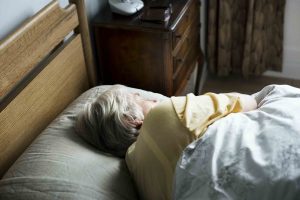
Researchers analyzed 4,482 people aged 50 and over who were part of the PROTECT study. This innovative online study includes participants who take regular cognitive tests and complete lifestyle questionnaires.
The study found that many participants were discussing the difficulty in sleeping as part of standard questionnaires. One participant commented, “How I feel fluctuates widely depending on my sleep. I feel great if I get six hours, so about half the time I feel younger, and half the time I feel older!”
Another comment read, “I have chronic pain problems and get very little sleep which impacts my life quite a lot.”
Second Questionnaire
After seeing these comments, the research team decided to conduct a secondary questionnaire looking specifically at sleep. All participants were asked whether they had experienced a list of negative age-related changes, such as less energy, poor memory, decreased motivation, and dependence on the help of others. All participants completed both questionnaires twice, one year apart.
The lead author of the study, professor Clive Ballard said, “This research is an important part of the growing body of evidence about the crucial role of sleep in healthy aging. We now need more people to sign up to PROTECT, to help us understand further. We’ve got some exciting trials ahead on how to optimize sleep in some particularly vulnerable groups, such as people with dementia in care homes.
This study helps to show that as we age, everyone may experience both positive and negative changes in many areas of their life, including poor sleep. However, some people perceive more negative changes than others, which can be detrimental to future physical health, mental health, and cognitive health.